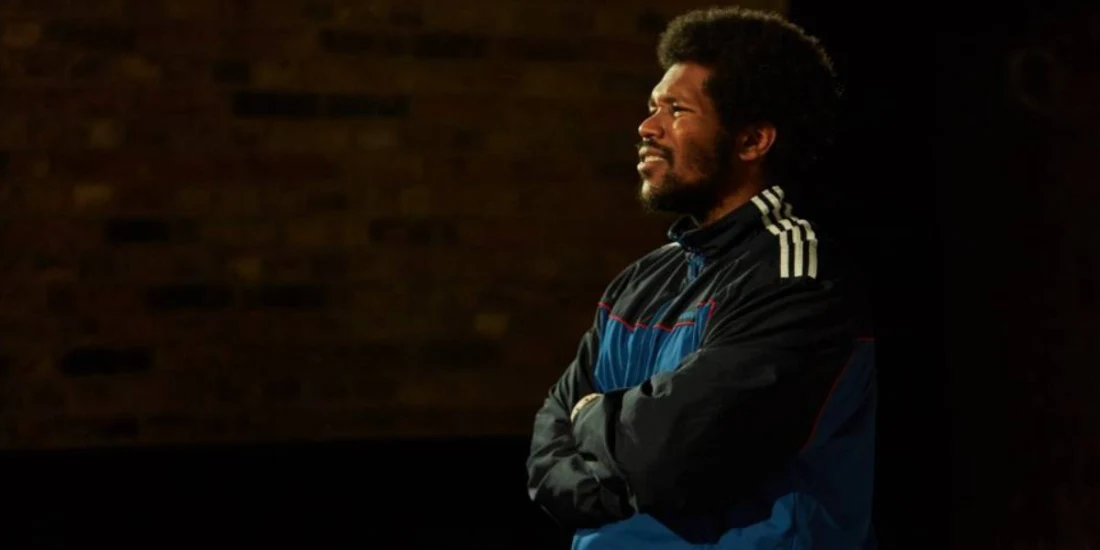'Nine Lives' serves as a reminder for empathy, compassion and kindness
When we are first introduced to Ishmael, he is urgently seeking to escape. He is illuminated by a solitary light bulb dangling from above and his only companion on the strikingly bare stage is his suitcase. It's clear that he is unsettled and is operating in survival mode.
Ishmael, our central character in Nine Lives, is gently revealed to us in the one-man show staged at the Bridge Theatre. Following threats to his life for being gay, he's fled from Zimbabwe to seek asylum in the UK and finds himself stuck in limbo.
The play's title Nine Lives may be a nod to the fact that living through the asylum process requires a cat-like ability to survive difficult situations unharmed. I'm also inclined to say that it refers to the challenges in maintaining a sense of identity. Of the themes explored in the play, a central one is how bearing the label of an asylum seeker largely shapes the various ways you are perceived by others.
To the teenager with the aggressive dog, he's another one of those who gets the free laptops, money and food all on the taxpayer's dime. To the landlord, Ishmael is another immigrant tenant not worthy of a handshake. To the Home Office, he's known as a reference number. To many of the strangers he encounters within Leeds, he's hardly visible at all.
In the 55-minute piece, writer Zodwa Nyoni has created a revealing glimpse into the life of someone who is awaiting the outcome of their asylum claim. This character is brought to life thanks to Lladel Bryant's engaging performance. Bryant succeeds in not only characterising Ishmael but the other supporting characters which he slips into with apparent ease. Under Alex Chisholm's direction, we are guided to share in Ishmael's experience. We feel his initial sense of wonder when he takes in the sights of the new city for the first time, we also feel the weight of his frustration at the sluggish system.
The asylum process is described as one which seeks to break your spirit before spitting you out. The play does not shy away from highlighting the stark limitations placed on economic freedom as Ishmael is made to ration his £36 per week allowance and is restricted to only purchasing goods at certain stores.
The piece also conveys the heightened degree of isolation which Ishmael feels within this new and unfamiliar environment. When he finds a community of other immigrants, he abruptly withdraws for fear he may experience homophobia. It's only in the local park that he is able to make friends with a single mother and he is relieved to finally feel seen. However, it's telling that he is compelled to introduce himself as Sam and creates a new persona for himself in a lie which he describes "rolls off the tongue before I can even catch it."
For a joyous yet fleeting moment, Ishmael is able to find release when he visits a nightclub. But for the most part, he never fully escapes the survival mode that is established at the start. His suitcase remains his only companion on stage, reinforcing the idea that his life is never quite settled and could be uprooted at any moment.
In Nine Lives, we are provided with an insight into just one of the thousands of stories from applicants who claim asylum in the UK each year. It successfully highlights the harsh realities for many caught within the system and also serves as an important reminder that greater empathy, compassion and kindness to those around us can go a long way.
Nine Lives is at the Bridge Theatre to 31 October.
Photo credit: Lladel Bryant in Nine Lives (Photo by Bridge Theatre)
Originally published on
